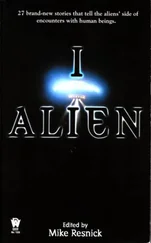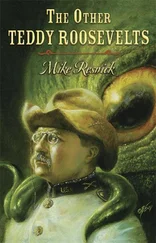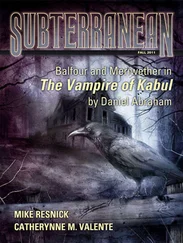Mike Resnick - Birthright
Здесь есть возможность читать онлайн «Mike Resnick - Birthright» весь текст электронной книги совершенно бесплатно (целиком полную версию без сокращений). В некоторых случаях можно слушать аудио, скачать через торрент в формате fb2 и присутствует краткое содержание. Жанр: Старинная литература, на английском языке. Описание произведения, (предисловие) а так же отзывы посетителей доступны на портале библиотеки ЛибКат.
- Название:Birthright
- Автор:
- Жанр:
- Год:неизвестен
- ISBN:нет данных
- Рейтинг книги:4 / 5. Голосов: 1
-
Избранное:Добавить в избранное
- Отзывы:
-
Ваша оценка:
- 80
- 1
- 2
- 3
- 4
- 5
Birthright: краткое содержание, описание и аннотация
Предлагаем к чтению аннотацию, описание, краткое содержание или предисловие (зависит от того, что написал сам автор книги «Birthright»). Если вы не нашли необходимую информацию о книге — напишите в комментариях, мы постараемся отыскать её.
Birthright — читать онлайн бесплатно полную книгу (весь текст) целиком
Ниже представлен текст книги, разбитый по страницам. Система сохранения места последней прочитанной страницы, позволяет с удобством читать онлайн бесплатно книгу «Birthright», без необходимости каждый раз заново искать на чём Вы остановились. Поставьте закладку, и сможете в любой момент перейти на страницу, на которой закончили чтение.
Интервал:
Закладка:
“Who are you?” she asked, peering into the gathering darkness. “I am Milnor, of the moon Kormonos, system of Atria, race of Rinn,” said the voice. She peered again, and finally could make out the Rinn's figure. It was vaguely humanoid in shape, a bit squatter and more muscular than a Man, with a greenish tint to the skin. There was considerable hair on the body, which was unclothed but for a pouch suspended from one shoulder. The Rinn spoke into a T-pack, which was strapped around a protuberance which appeared to be a chin, but wore no face mask or helmet, and seemed quite at home breathing Earth's air. “I am Breece, race of Man,” she said. “What are you doing here?” “I am an archaeologist,” said Milnor. “I have spent the past seventeen years on Earth, digging through ruins, rummaging through still-standing buildings, even interviewing those Men who still cling to this world. I have been in the Serengeti for almost two months. One of my robots informed me of another camp. I came to ascertain your motives for being here.”
“I have as much right here as you do,” said Breece. “Perhaps more.”
“I do not deny this,” said Milnor. “I only wish it known that I am totally nonpolitical, and am interested only in my work. If my presence here will offend you, I can easily move my base of operations elsewhere until such time as you leave.”
“That won't be necessary,” said Breece, feeling a sudden rush of guilt. “I'm noncombative. In fact, it appears we are members of the same profession.” “I had hoped as much,” said the Rinn. “Still, with no intention of offending you, I felt it best to make sure, though certainly no one but another archaeologist would have any reason for being here.” “Oh, I don't know,” said Breece. “It seems like a lovely place to live.” “I would think, based on my knowledge of Man and supported by my findings on Earth, that you would crave the community of your fellow beings.” “Most Men would,” agreed Breece.
“But not yourself?”
“No. I'm different.”
The Rinn's mouth curved in its equivalent of a smile, then straightened suddenly. “If you crave solitude...” “Your presence doesn't upset me, if that's what you're driving at,” said Breece. “In fact, I think I'd find exchanging ideas with an archaeologist of a different race most stimulating.” “Excellent,” said Milnor with another smile. “Would it offend you if I were to consume some food first? My metabolism is such that I must feed at least five or six times a day.” “I wonder that you have time for your work,” said Breece. “I never sleep,” said the Rinn. “May I summon one of my robots?"’ “Of course,” said Breece, and a moment later a robot, almost indistinguishable from the Rinn, approached with a small container. “It is only vegetation,” said Milnor. “However, if the sight of my eating it will affect you adversely, I can withdraw.”
“It's not necessary,” said Breece. As Milnor devoured a number of plants and grasses, Breece's eyes examined the robot. “That's a fabulous machine,” she said at last. “It's amazing how much progress has been made in the science of robotics.”
“Indeed,” agreed Milnor. “And yet, it was a science devised by Man. Why is it that your race made only minimal use of it?”
“We preferred to do things ourselves,” said Breece. “True.” Milnor nodded. “Man never gave quarter, but he never asked for it either. A fascinating race.”
“What was it that led you to devote so much time to the study of my race?” asked Breece.
“So many of the sentient species are so busy blindly making war against Man that I felt that somebody ought to try to understand you.”
“I thank you for the sentiment,” said Breece. “And what have you learned about us that has increased your understanding?”
“That is a very difficult question,” said Milnor. “Oh? Why?”
“Because the more I discover about your race, the less I am able to comprehend it.” “Welcome to the club,” said Breece with a bitter laugh. “Perhaps you can enlighten me on some points,” said Milnor eagerly—or at least he looked eager. The words coming through the T-pack were totally devoid of emotion. “I'll try,” said Breece, “but please don't be too disappointed if I'm just as puzzled as you are.” “Well, for example,” said Milnor—and now they were not Man and non-Man, but merely two professionals discussing their field of expertise—"very few races of the galaxy have believed in religion, though many accept the philosophical notion of deity. Yet Man had not just one religion, but literally hundreds of them. Many of them issued very reasonable ethical codes and directives, from which most civil law on Earth, and ultimately the Commonwealth, was derived; Also, the great religious figures, from Jesus and Buddha almost to the end of human history, have preached a doctrine of love and tranquility.” “You forget Moses, who figuratively took the sword of God in his hand to slay the Egyptians.” “But even Moses did not allow his people to fight,” said Milnor, “and it was Moses who gave his nation the Ten Commandments. Now, my question is this: given such ethical codes and moral leaders, and threatening what seemed to most Men to be the very real alternative of hellfire and eternal damnation, it would seem to me that Man would have evolved socially and morally into the most peaceful and ethical of species. And yet this obviously is not the case, despite rare examples to the contrary. Can you possibly explain this to me from a Man's viewpoint?” “Not as an archaeologist, I can't,” said Breece. “But perhaps archaeology is the wrong science to apply to that question.”
“Which science would suit it better?” asked the Rinn. “Anthropology, perhaps. Or psychology. Or possibly even philosophy. At any rate, I think the answer lies in more than one place. First of all, Man was a carnivore. He still is, though he calls himself an omnivore. The conditions of ancient Earth were such that Man either had to evolve certain seemingly physically impossible abilities, such as geometrically multiplying his strength and speed, or he could develop into an intelligent being. No evolution occurs without prior environmental need, and in this case the need was for a physical equalizer, some method by which Man could kill the animals he had to kill in order to survive. This led to the creation of weapons. Some people, in fact most people, would say that all human history follows from that.”
“But this is not necessarily so,” said Milnor. “Man is not the only intelligent carnivore in the galaxy.”
“True,” said Breece. “As I said, that's only part of the answer, only one influence upon the race.” “And what of religion, of the noble philosophic systems Man devised?” asked the Rinn. “Religion was an emotional crutch, and an emotional weapon as well. It was a crutch in that it offered a catch-all explanation for the inexplicable, and a weapon in that farsighted men such as Moses were able to invoke the authority of God Himself to gain acceptance of their ethical systems.” “This I realize,” said Milnor. “But where did it break down?” “That's hard to say. But every time Man achieved something new, such as air travel, the birds and clouds were no longer things of wonder to us and another page of the Bible became just so much pretty poetry. As for the ethical systems, I can't really give you an answer. Possibly when Man moved out into the galaxy he felt he was greater than God, and hence under no ethical imperative to obey his Earthbound and Earthmade laws.”
“But Man ignored these two laws during most of his existence on Earth,” Milnor pointed out. “I know,” said Breece. “Maybe the laws were made for perfect things, and Man is not perfect. If I knew the answers, I wouldn't be here.”
Читать дальшеИнтервал:
Закладка:
Похожие книги на «Birthright»
Представляем Вашему вниманию похожие книги на «Birthright» списком для выбора. Мы отобрали схожую по названию и смыслу литературу в надежде предоставить читателям больше вариантов отыскать новые, интересные, ещё непрочитанные произведения.
Обсуждение, отзывы о книге «Birthright» и просто собственные мнения читателей. Оставьте ваши комментарии, напишите, что Вы думаете о произведении, его смысле или главных героях. Укажите что конкретно понравилось, а что нет, и почему Вы так считаете.











